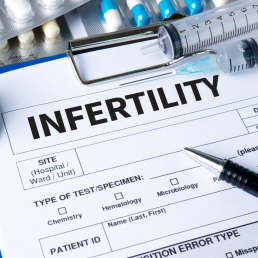
In the US, approximately 12% of women age 15 to 44 have trouble getting pregnant or carrying a pregnancy to term.¹ To honor National Infertility Week we sat down with Myra, an infertility nurse from Boston, Massachusetts, to talk about the hardships and joys associated with infertility treatment.
Portal Instruments: April is Infertility Awareness Month. What would you like people to be more aware of?
Myra: I would like to make people more aware of the problems that come along with infertility and the emotional, physical, and financial toll it can take on a patient or couple. A large segment of the population deals with fertility-related issues – more than most people realize. Part of the challenge is that infertility is not perceived as a medical condition and often not covered by insurance.
Portal Instruments: Do you have any happy stories of successful infertility treatment to share?
Myra: The end goal of infertility treatment is to create a family. So whether a couple conceives after trying for so long or they ultimately cannot get pregnant and move on to adoption, it is still a happy story because it ends with a family.
Portal Instruments: IVF can be an arduous ordeal during a very emotional time. Can you elaborate on that statement? Can you tell us about what patients have to go through clinically during IVF?
Myra: Fertility treatment is not just IVF. To get to IVF patients go through an initial workup, inseminations, medications and various procedures before starting IVF. By the time a patient moves to IVF, they have already gone through months of treatment.
Portal Instruments: What is the most common issue you see with patients injecting themselves at home?
Myra: The most common issue with patients injecting themselves at home is overcoming needle phobia. A lot of people out there are needle-phobic. On the other hand, a lot of patients do well taking injections at home. There are a LOT of injections involved with IVF so even if you are not afraid of needles, you are still injecting over a long period of time, even multiple times per day. To have a device that doesn’t involve putting a needle into your skin over and over again would be a wonderful option. Disposing of needles is a hassle as well because you cannot just throw a needle in the garbage.
I also want to mention that I read a blog that talked about the male perspective of giving injections to their partner for their infertility treatments. The comment made by this individual was that he tried to do the perfect injection so that he and his partner would receive the best results. The woman is going through the brunt of the actual medical treatment but there is an emotional toll on any partners involved.
Portal Instruments: How do you think patients would feel about a needle-free option for IVF?
Myra: I think those that are needle phobic would be very interested in a needle-free option for IVF. Even those who are “ok” with needles, it is still multiple injections a day. To have a device that is more user-friendly and does not involve a needle, I think patients would be interested in that. I know a medically trained physician who could not get the bubbles out of her syringe. If someone who is medically trained is having a hard time, I’m sure others are too.
Portal Instruments: Do you have any other comments or things you would like to talk about?
Myra: I do want to shed some light on the emotional piece of infertility treatment. It is so draining… and I think many people have difficulty talking about this. They are sometimes embarrassed and do not want to share what they are dealing with. This emotional aspect definitely takes a toll on someone. Also, many people think a couple can’t get pregnant because they aren’t trying hard enough. People don’t understand the invasion of privacy that a couple goes through with the tests and months of treatment… so putting that out at the forefront and having people be more sensitive to those going through infertility treatment is something I want everyone to be more aware of.
¹ “Infertility.” Centers for Disease Control and Prevention, Centers for Disease Control and Prevention, 13 Apr. 2021, www.cdc.gov/reproductivehealth/infertility/.
Portal’s platform is in development and not available for sale or use.

